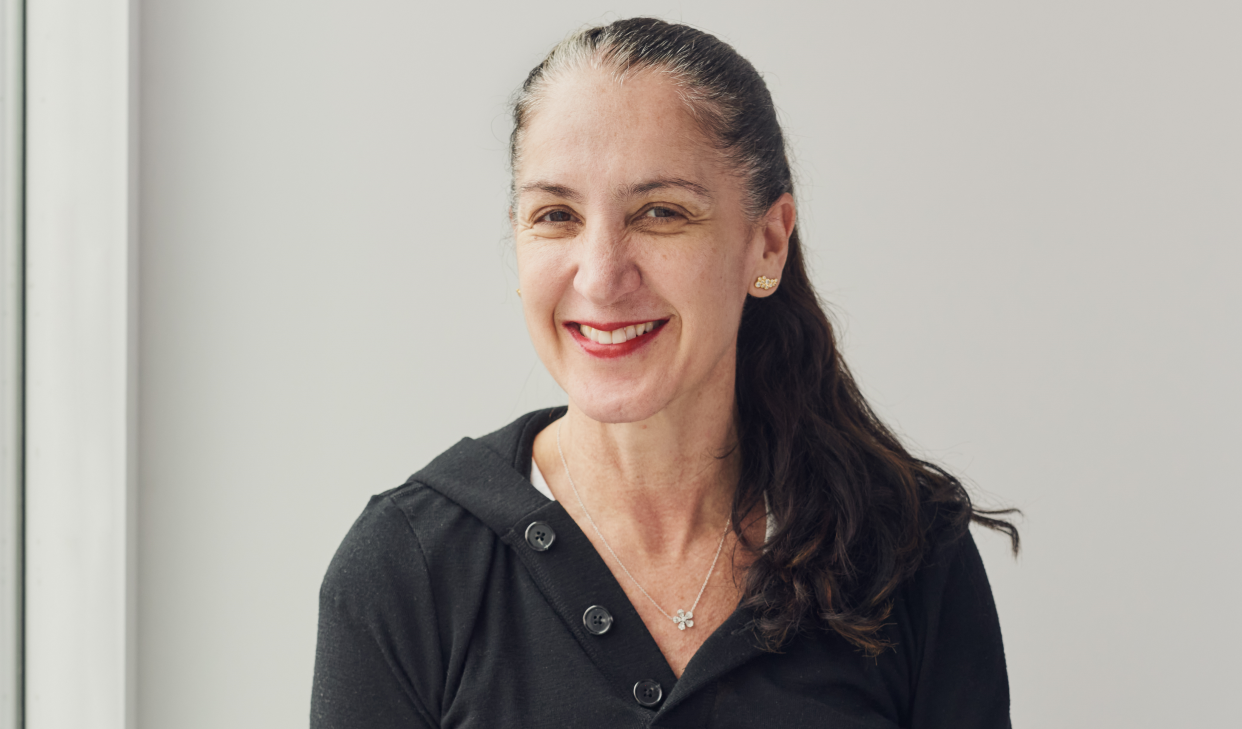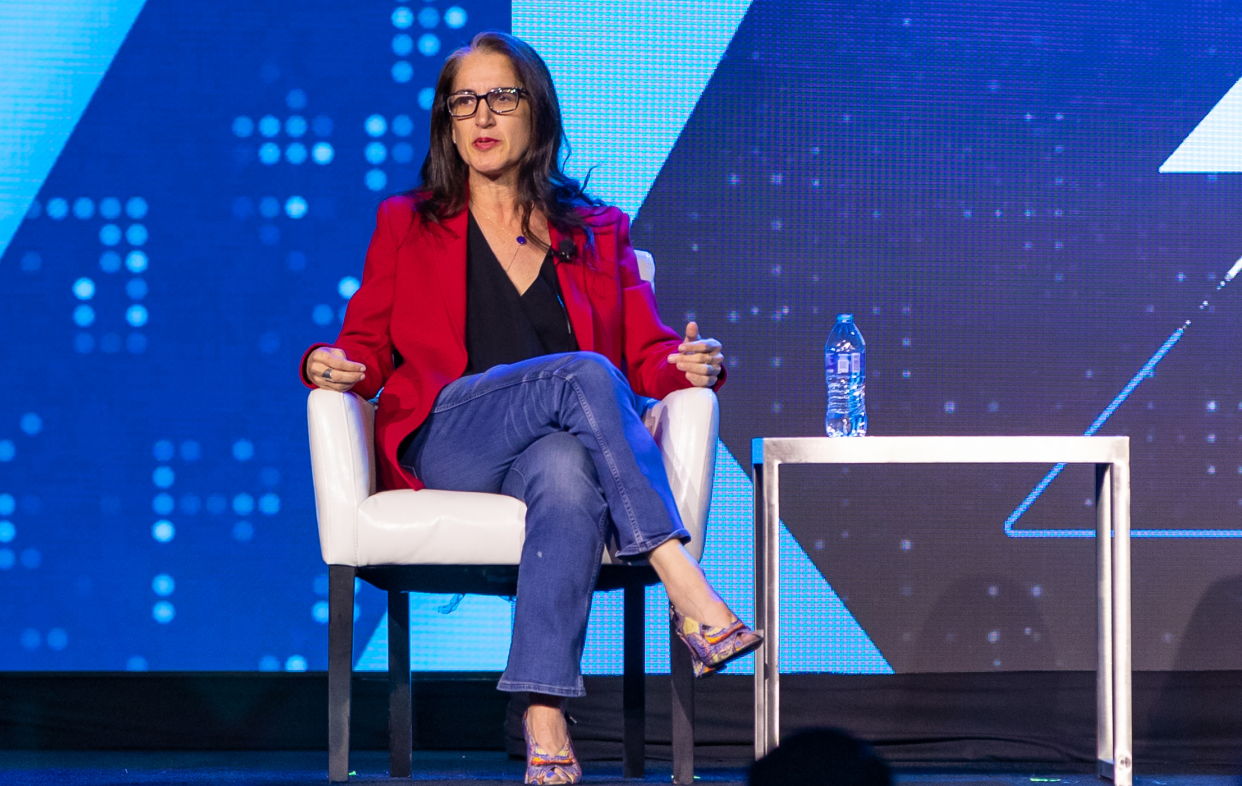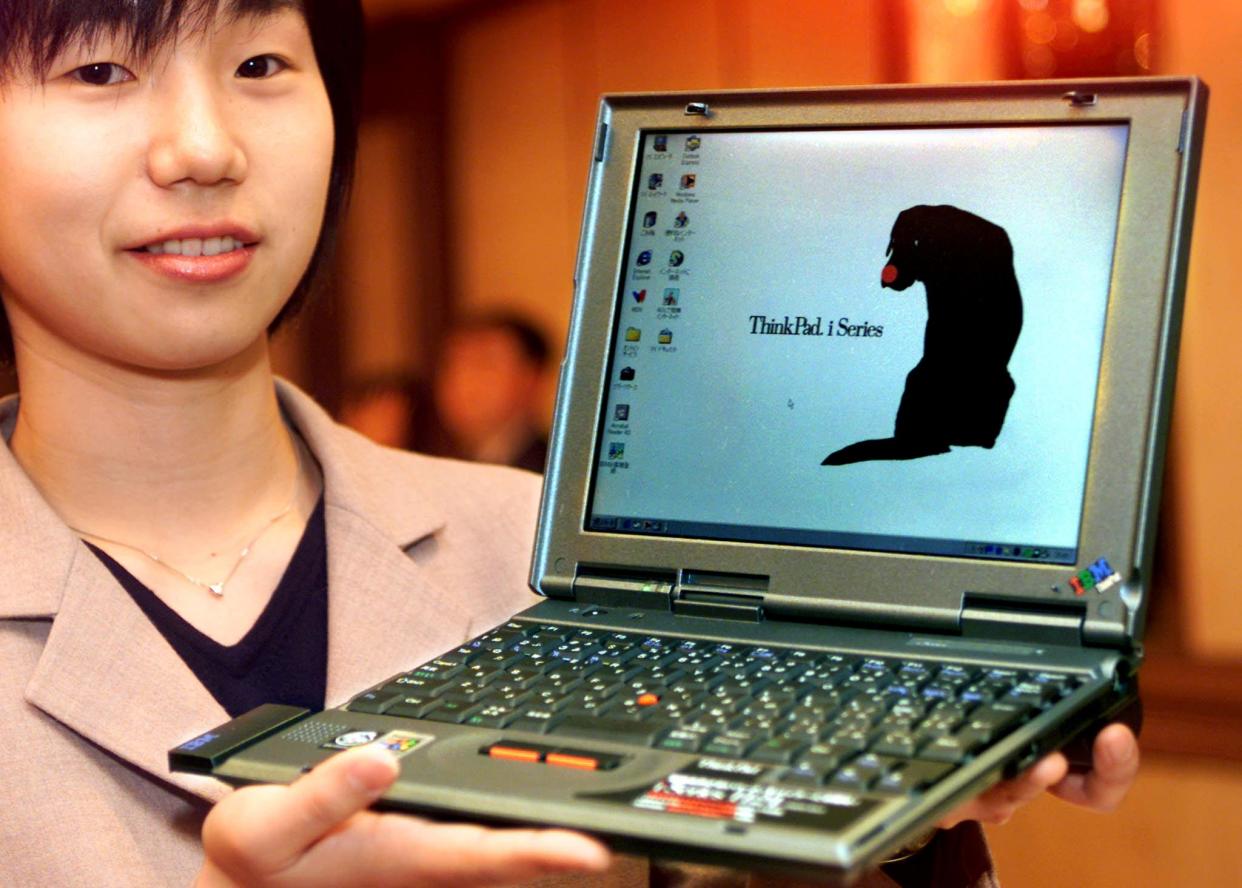How my IBM boss taught me to navigate a complex organisation

Liza Landsman is CEO of Stash, the US-based financial platform and investing app. Landsman has held leadership roles at Jet.com, Citigroup, BlackRock, E*TRADE and IBM and is listed amongst Fortune’s Most Powerful Women to Watch.
Working at IBM was a phenomenal opportunity for me to have a front-row seat in the midst of the company’s radical transformation, from a mainframe hardware business into a services and consulting sales business.
I got my first start at a literary agency reading a lot of deal contracts and I noticed that people were beginning to ask for electronic rights. I thought there was some value here, went to the agency partners and said, "I’d like a shot at making something out of it." Since no one else was, they said "Okay, kid, knock yourself out."
Read More: Meet the air quality crusader on a mission to stop toxic air
It led me into digital media, content and e-commerce in the 1990s, where I might have otherwise gone down a more traditional path.
My primary tour of duty was inside what was called the Personal Systems Group (PSG), a new business at IBM. The idea was we had all this great technology but had only been selling to enterprise. What if we opened up access to personal computers and software for individuals?
The CFO at the division was Mike Sweeney, who was straight from central casting and a long-time IBM veteran. I was a deals person from my literary days, but couldn’t read a balance sheet. Mike took me under his wing, he taught me how to navigate a complex organisation, how to spot and develop talent, when to talk and when to keep quiet and how to drink Scotch.

Being incredibly comfortable in his own skin, he had the temperament of a mentor and invested time in making me smarter. He was self-aware, knew his own strengths and weaknesses and wasn’t shy in sharing his view on what yours were as well.
He was potentially one of the most connected human beings I’ve ever worked with, which is somewhat unusual in CFOs. He also didn’t have lengthy patience for people who hadn’t done their homework, which was a very important lesson.
He was passionate at what the division was trying to achieve. Essentially not dissimilar to how we view fintech today; the democratisation of access to all this amazing technology, which IBM had built up over the years.
Read More: Mandatory yoga, massages and staff culture: 'Salesforce CEO's outlook was unlike anything I'd seen'
In my desk when I joined IBM, in addition to a book of songs that could be sung at company gatherings, was an invaluable pamphlet divided into two sections: three and four-letter acronyms. PSG was one of many.
At the time, I thought finance and more broadly the culture inside these large organisations was led by development and innovation. The transition the business was going through is one that I’ve held dear to my heart ever since - putting the customer at the centre of the development process, as opposed to finding the customer at the end.
Most of the time individuals can’t see their own potential. Part of being a good leader is helping people on your team understand how much more potential they actually have and how to achieve that. Often, people mistake career progression for development. Lots of people get promoted, but it’s not always synonymous with developing greater value and realising the potential of their talent.

I try to make people understand the difference between career development (the things you do so other people know you are more valuable) and professional development (the things you do which make you more valuable).
Post my time with Mike, and midpoint in my career at Citigroup, one of the biggest career lessons I learned was that I wasn’t playing the game, not playing for the season, but playing to build a long-time franchise or portfolio of experience.
When I started working at Citigroup in 2000 – I was there for 10 years and through the Great Recession – and BlackRock, I knew they were great companies but they helped people who were already financially secure achieve more security.
My dream was to create more access for people like me and my family.
I had grown up in a family with little to no money and was the first woman from my family to graduate from college. Further, no one had told me how to think about money or how to create my own financial wellness.

When I first learned about Stash, the first thing that hit my head was that it was almost like unfinished business from all the things I wanted to do at these more heritage organisations.
The point about access is a critical one. The big part of the issue is getting people off the sidelines as they think they don’t have enough money or know how to invest.
Read More: 'We had to write down our peers' strengths – our boss mailed them to their parents'
For much of the company’s history, we have done that by going to the consumer. We can go to the source and reach people through their employers. It is often the case that your employer is where you look to for answers, support and help.
If I look back on my career, many of my choices make much more sense now I am the CEO of Stash. I have done high growth, early-stage start-ups, e-commerce, worked on trading platforms and in asset gathering.
All of those things meet in a high-growth, late-stage company that has sought democratisation of access to the equity market, which Mike would have found powerful as well.
Liza Landsman will be speaking at the 2024 Web Summit in Lisbon
Download the Yahoo Finance app, available for Apple and Android.



